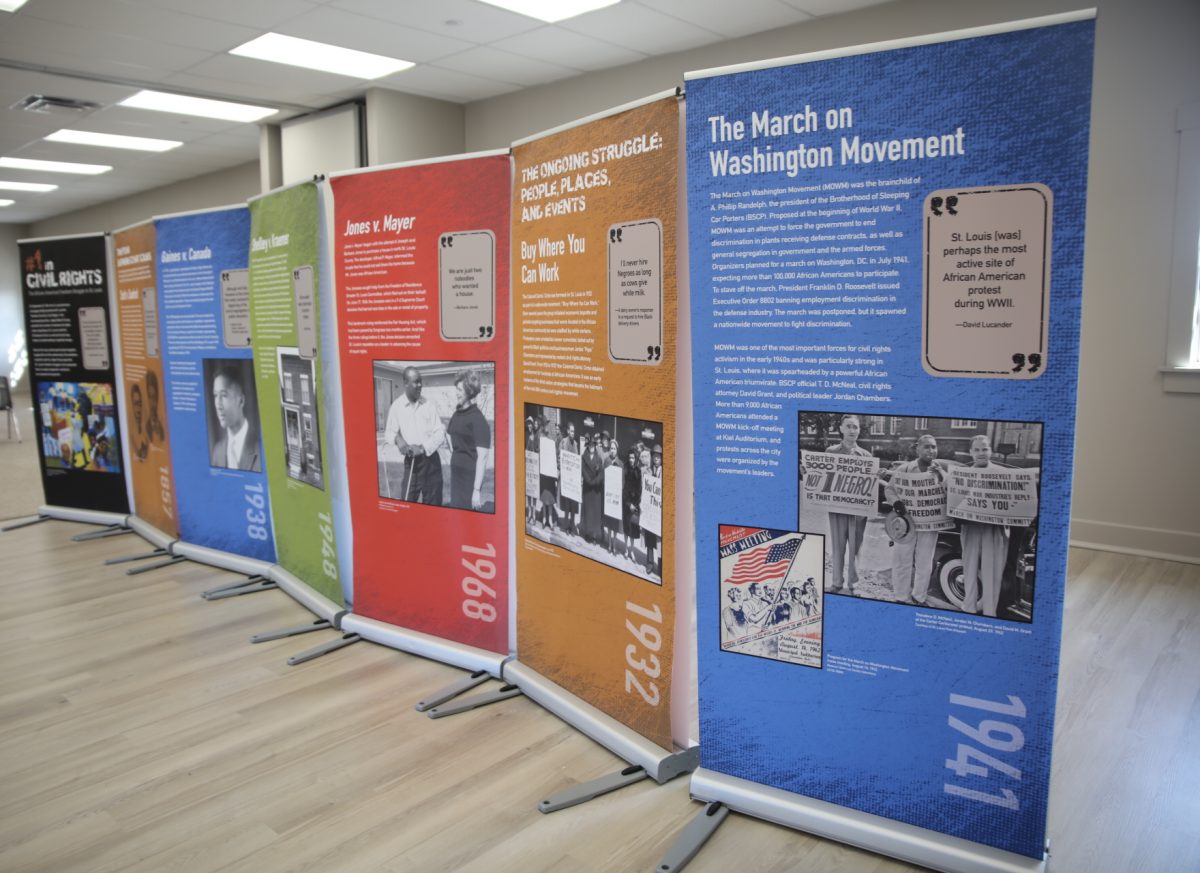River City Casino’s value will be the same this year as it was in 2010, the county Board of Equalization said last week, reversing an earlier decision to reduce the casino’s total property assessment by more than 40 percent.
The board agreed during a special meeting Sept. 27 to set the Lemay casino’s 2011 assessed valuation at its 2010 level of roughly $270 million after initially deciding it was worth roughly $164 million.
In a separate decision, the board reaffirmed its decision to set the 2011 assessed valuation of Harrah’s Casino in Maryland Heights at roughly $215 million, a decrease from its preliminary assessed valuation of $502 million.
Officials had criticized the board’s original decision to reduce River City’s property assessment because local taxing entities — namely the Hancock Place School District and the Lemay Fire Protection District — stood to lose hundreds of thousands of dollars in revenue.
As a result, county Assessor Jake Zimmerman’s office said the average Lemay homeowner would have faced a tax increase of about $200 due to the districts rolling up their property-tax rates to stay revenue neutral this year.
Hancock officials, for example, were prepared to ask the Board of Education to roll up the district’s “blended” property-tax rate 61 cents — from $4.70 to its voter-approved cap of $5.31 per $100 of assessed valuation — to offset an estimated $641,000 in lost revenue.
Following the Board of Equalization’s decision last week, the school board rolled up the district’s rate 1.5 cents.
“This has always been about the education of our kids, the safety of our communities, and doing what is fair for the taxpayers of St. Louis County,” Zimmerman said in a statement late Sept. 27. “I am pleased that the Board of Equalization recognized this principle and took a solid step in the right direction this afternoon.
“There is no one in this county who believes that a casino that was worth $270 million last year is somehow worth $164 million this year. I am glad that the board has decided to reverse their River City Casino decision; it was the right thing to do — not only based on what is fair for the people of Lemay, but also based on the facts.”
Pinnacle Entertainment’s $380 million River City Casino, like more than 18,000 other county property owners this reassessment year, went before the Board of Equalization unhappy with the assessor’s preliminary valuation of its property.
Zimmerman’s office assessed the casino at roughly $284 million, up from $270 million in 2010. But after conducting hearings with casino representatives, the three-member appeals board determined the casino was overassessed and cut the total value of the property to roughly $164 million — a 42-percent decrease. The assessor called the board’s reduction “outrageous.” He said the case — like River City’s 2010 protested taxes — belonged in front of the Missouri State Tax Commission and demanded the board leave both casinos’ values unchanged.
In his statement, Zimmerman said he hoped the board’s decision last week “means that both of these cases will now go before the State Tax Commission, which is the appropriate venue in which to deliberate these kinds of complex commercial assessment disputes.”
“The bottom line is that the stakes are just too high for the school districts and fire districts to make decisions on these casinos based on a 30-minute hearing — because if you make a bad ruling, it is the families and businesses of St. Louis County who pay the price,” Zimmerman said.
But Board of Equalization Chairwoman Leslie Broadnax has said River City’s appeal was treated no differently than that of any other taxpayer. The board, she contended at last week’s special meeting, made its initial decision based on the information available at the time.
“We’ve been put in a pretty precarious situation,” Broadnax said. “I think politicians are the only people that I know that create problems then campaign against them. Mr. Zimmerman has called our decision ‘outrageous’ and said that we are in over our heads and has even hinted to unethical behavior by the board.”
The board agreed to review its decision so “somebody could give us more information to guide our decision because to this point we feel like we’ve had too little,” she added. “… More importantly, we’re again here to let the citizens of St. Louis County know that there is no impropriety here, no unethical behavior, our decision was not in fact outrageous and that we believe that the information that was placed before us — with that information that we had, that we made the best decision at that time.”
In his nearly 10-minute testimony before the board, Zimmerman called for an end to the blame game so the fair market value of the two casinos could be determined.
“I hope that you’re here to listen with open ears and we’re not here to engage in a little bit of theater. If it’s to be ‘beat-up-on-the-assessor day’ then that’s fine; you’re welcome to say whatever you like about me or about my office,” Zimmerman said.
“Let me extend this olive branch, though. I don’t really care who did what here. All I care is that we get to the right value,” he continued. “So I’m not going to go to these TV cameras after this hearing is over with and quibble about numbers or how we reached assessed valuation or what we should or shouldn’t have provided you. And if you want to go to the cameras and tell them that I’m the Grinch who stole Christmas and took candy away from babies, that’s fine. Just do the right thing. Just fix these numbers.”
Broadnax at one point said Zimmerman’s office never provided the board with a formal 2011 appraisal of River City during hearings in August on the casino’s appeal.
The assessor replied that one wasn’t provided for “the same reason the board is just about never presented with an appraisal for any large, commercial appeal … The reason for that is taxpayer dollars are not well spent preparing full and final reports to be used in litigation in the first stage of the process. Where that stuff belongs is at the state Tax Commission.”
Zimmerman’s office did supply the board with a letter from an external consultant that specializes in casino assessments. The consultant, Hospitality Real Estate Counselors, which was hired to produce values for both casinos, wrote that River City’s 2010 assessment is “within the range of reasonableness” for 2011.
But County Council Chairman Steve Stenger, D-south county, believes Zimmerman should have provided the board more evidence for keeping the two casinos’ valuations at their preliminary levels — including obtaining proper appraisals. Stenger last week exercised his county Charter-granted authority to call on the county auditor to investigate the “exact techniques, processes, procedures and methods” Zimmerman’s office used to determine the 2011 value of both River City and Harrah’s casinos.
In a letter to acting county Auditor David Makarewicz, Stenger asked for “recommendations as to the proper procedures for valuation of highly valuable property. Please also make your recommendation as to what should constitute highly valuable property which would justify heightened standards of valuation and proof of said valuation.”
“I would imagine that when the auditor creates his report it’s going to have something in it containing where things went wrong and how things can be made better in the future and factual findings to determine what was presented to the board,” Stenger told the Call. “Because at this point there are conflicting stories. The county assessor would have us believe that he did his job. The county executive and the Board of Equalization say he didn’t do his job. I’m not part of that political fight; I just want to get down to what the facts are because we cannot afford to have mistakes like this made in St. Louis County. It’s tens of millions of dollars to the taxing jurisdictions and the residents.”
Zimmerman told reporters after last week’s Board of Equalization hearing that he welcomed the auditor’s investigation. However, he told the Call he couldn’t discuss what was or wasn’t presented to the appeals board.
“I can’t comment on reports that are being prepared for litigation, and I anticipate that report from the consultant will be used as expert testimony in our dispute with River City over the 2010 valuation, so I’m not at liberty to talk about what the consultant has or hasn’t produced,” he said. “What I can say is that there is a full and thorough factual background for this office’s decision to come to the assessed valuations that it did and the Board of Equalization is the wrong entity to be making changes to those numbers.”








